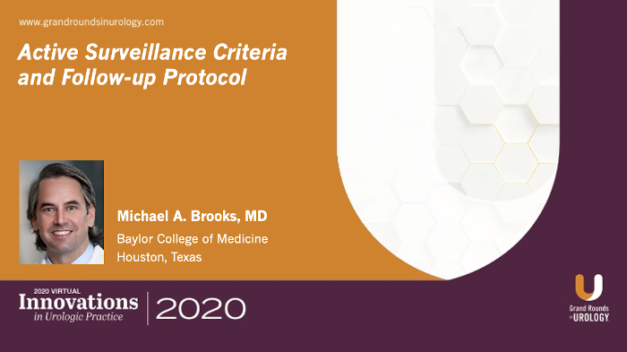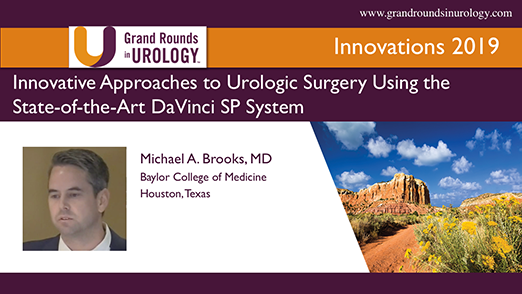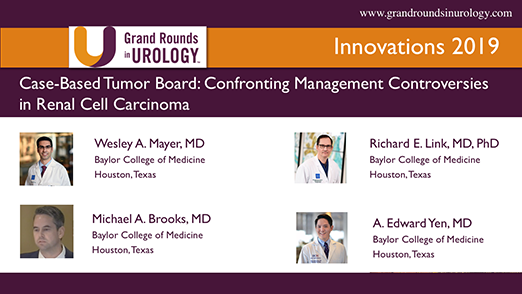Active Surveillance – When Can You Continue Watching and When Do You Intervene?
Guilherme Godoy, MD, MPH, Assistant Professor of Urology and Urology Oncology, Dov Kadmon, MD, Professor of Urology, and Michael A. Brooks, MD, Assistant Professor of Urology and Oncology, all at Baylor College of Medicine in Houston, Texas, discuss active surveillance (AS) for prostate cancer by using numerous case studies outlining patient characteristics, evaluation methods and diagnosis, the discussion and decision-making process, treatment, and outcome data to illustrate best practices. Their panel discussion covers magnetic resonance imaging (MRI)-fusion biopsy and systematic biopsy and highlights the need to use both as they are complementary. The doctors also discuss risk-benefit analysis; the role of urine, blood, and genomic testing; treatment algorithms, and important considerations such as those surrounding the patient’s overall health and life expectancy. Dr. Kadmon highlights the importance of integrating experience, common sense, and research. He emphasizes that integrating prostate MRI in AS protocol is imperative and MRI is important both when starting AS and in follow up. The doctors caution that MRI is not infallible; if the follow-up MRI is negative but there is strong suspicion for progression, a regular follow-up biopsy is justified. They advise that these follow-up biopsies be done for a reason and not just not based on an arbitrary time interval. Dr. Kadmon reiterates the point that a fusion biopsy and a systematic biopsy are complementary and should be carried out simultaneously and concludes by reviewing success elements involved in prostate MRI, including the equipment and protocols used, the experience of the radiologist, and whether the radiology program includes a quality improvement feedback loop, emphasizing that all these factors are important.
Read More


